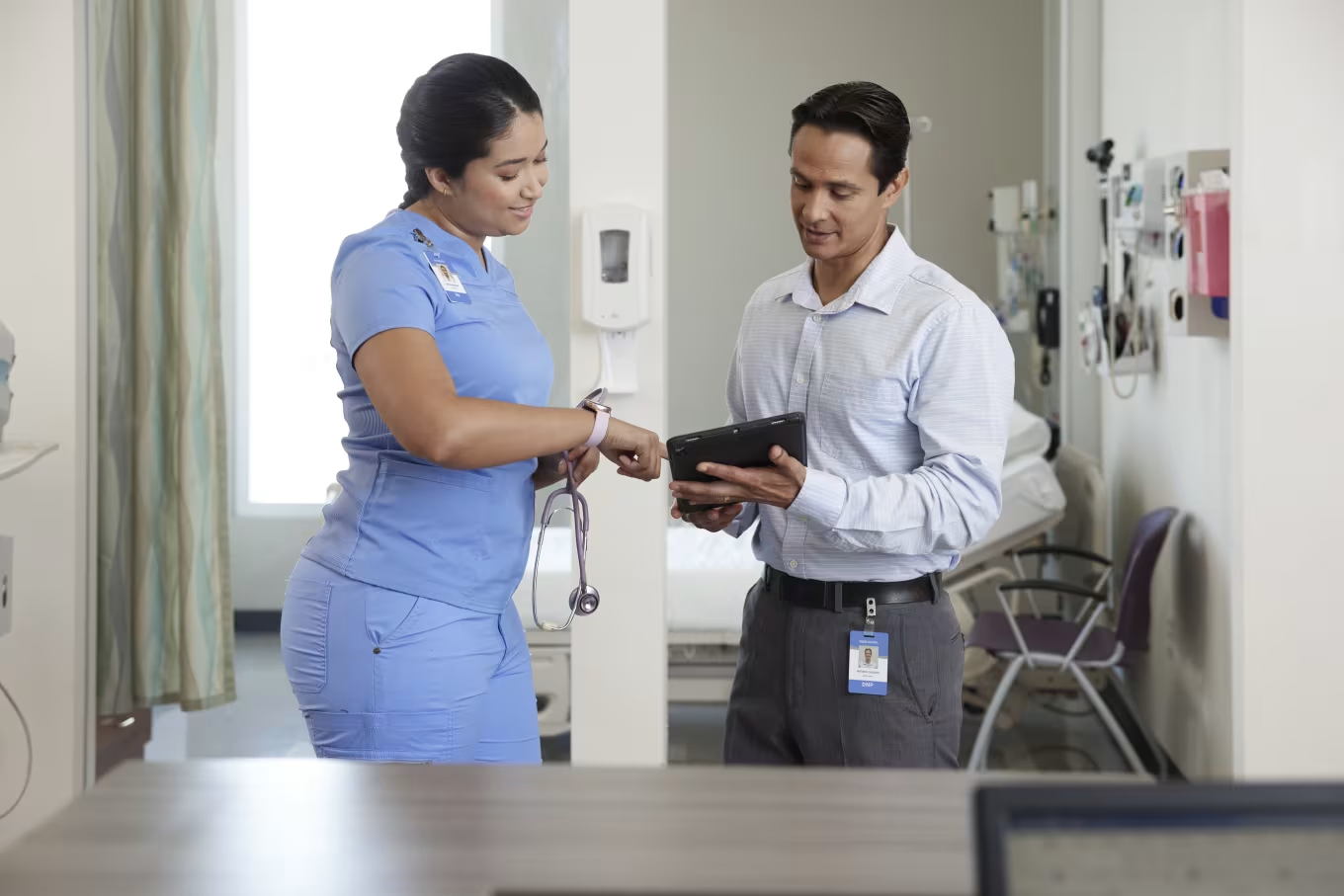Master of Science in Nursing: Family Nurse Practitioner (MSN FNP)

Master of Science in Nursing: Family Nurse Practitioner (MSN FNP)
journey today.
The MSN Family Nurse Practitioner (FNP) program can prepare experienced professional nurses for advanced practice as primary care providers. The family nurse practitioner makes independent critical judgments in all levels of prevention, including health promotion, illness prevention, and diagnosis and management for individuals, families, communities and populations.
The FNP performs comprehensive health assessments, diagnoses illnesses and prescribes pharmacologic and nonpharmacologic treatments to manage acute and chronic health problems to achieve quality, cost-effective outcomes in a culturally sensitive context.

Program available in Arizona, Colorado, Florida, Georgia, Illinois, Nevada, New Mexico, North Carolina and Texas.
Your preparation in the family nurse practitioner program includes a comprehensive curriculum that can help you provide primary healthcare to individuals of all ages and locales, including underserved urban and rural areas. You will also analyze case studies in accordance with the guidelines of evidence-based practice and current standards of care. Your MSN family nurse practitioner education can prepare you for professional roles including patient care, education, consulting and collaborating with other healthcare providers, and using research to make practice decisions and influencing professional and public policies.

Complete Your MSN FNP Program Online With GCU1
At GCU, you have the option to complete classes for your FNP program online.1 Online learning can provide you with the same comprehensive curriculum and in-depth knowledge as an in-person program. You will have access to various online learning resources and support that can help you as you pursue your program.
MSN FNP classroom instruction includes radiologic interpretation, chronic disease management, coding and billing, public health and case study analysis. A two-day experience in the FNP-690 course provide family nurse practitioner students an in-depth certification exam practice with individual exam review and remediation planning, systems and topic reviews. This program is designed to support collaboration, discussion and hands-on skills.
The MSN FNP program includes 675 hours of directly supervised clinical practice with qualified preceptors and two separate on-campus experiences.

Primary Subjects Taught in MSN FNP Program
The family nurse practitioner program online curriculum focuses on teaching students to become well-rounded primary care providers through in-depth study of the following subject areas:1
Study Transferrable Skills and Experience
The clinical practicum experience at GCU’s nursing school allows you to collaborate with faculty members to select a local primary care or family care site. This portion of the family nurse practitioner program can provide you the opportunity to apply clinical decision-making skills and health management of primary problems for diverse clients across the human life span. In addition, you can interact with patients in the role of care provider and educator.
During your MSN family nurse practitioner program with GCU, you will participate in two on-campus experiences designed to provide collaboration with peers, hands-on skill development with patient actors and interdisciplinary faculty. The first on-campus experience is a three-day requirement in the FNP-630 course that provides opportunities to perform health assessments, suturing and wound care, casting and splinting, EKG, radiology, male and female exams, and newborn and obstetrics assessments.
A Post-Master of Science in Nursing: Family Nurse Practitioner Certificate program is also available to nurses who already have an MSN degree.

The Master of Science in Nursing: Family Nurse Practitioner program is built to meet standards set by recognized, reputable nursing organizations, including:
For more information on the accreditation of nursing programs and other university approvals, please visit our University Accreditation and Regulations page.
Master of Science in Nursing: Family Nurse Practitioner Program FAQs
If you strive to have a positive effect on the healthcare in your community by serving as an FNP, read some frequently asked questions below to learn more about earning your MSN.
A family nurse practitioner (FNP) is a specific career within healthcare. Alternatively, a Doctor of Nursing Practice (DNP) is a doctoral degree. To become an FNP, at a minimum, a master’s degree is required. FNPs may choose to extend their skill set and career opportunities by pursuing a DNP degree.
To enroll in an MSN Family Nurse Practitioner (FNP) program, you must have a Bachelor of Science in Nursing (BSN) degree from a CCNE/NLNAC or ACEN accredited program reflecting a cumulative grade point average of 3.0 or above (on a 4.0 scale). If you have a bachelor’s degree in an unrelated field, consider enrolling in the MSN nurse practitioner bridge pathway first. This can provide you with the necessary knowledge and prerequisites to later pursue the MSN Family Nurse Practitioner degree. For information regarding GCU’s admission process, visit our Graduate Admission Requirements page.
The program is rigorous in order to prepare graduates for the challenging nature of this advanced nursing career. A family nurse practitioner (FNP) is categorized as an advanced practice registered nurse (APRN) who has the education and credentials to specialize in a specific patient population or set of skills. Therefore, the MSN FNP program includes intensive curricula spanning all major areas of family nursing, hands-on skills labs and hundreds of hours of supervised clinicals. Graduates of this program will be eligible to sit for the certification exam in their specialty.
A Master of Science in Nursing family nurse practitioner degree is designed for individuals who want to provide in-depth, ongoing medical care for individuals and/or families. Family nurse practitioners often build strong relationships with their patients by offering treatment plans, prevention education and advocacy services. If you have a specific passion for pediatrics, adolescence or gerontology, earning an MSN FNP degree can provide you with the necessary education to then acquire certification within your desired patient population.
The most notable difference between a family nurse practitioner (FNP) and registered nurse (RN) is that an FNP can prescribe medications and treatments, order tests and diagnose patients, whereas an RN usually works under the supervision of a physician who will determine patient treatment and diagnoses.
An FNP holds at least a Master of Science in Nursing (MSN) and is certified and licensed to practice with patient population across the life span. This advanced education and work experience often provides more autonomy and responsibility for nurse practitioners. An RN must hold either an associate degree in nursing or BSN. They must also pass the National Council Licensure Examination (NCLEX) and apply for state licensure in order to practice.

Make an Impact in the Lives of Families
If your goal is to become a family nurse practitioner, GCU can help you get there. Fill out the form on this page to learn more about our program and get in touch with a university counselor.
Clinical, practicum and immersion hours completed locally.

